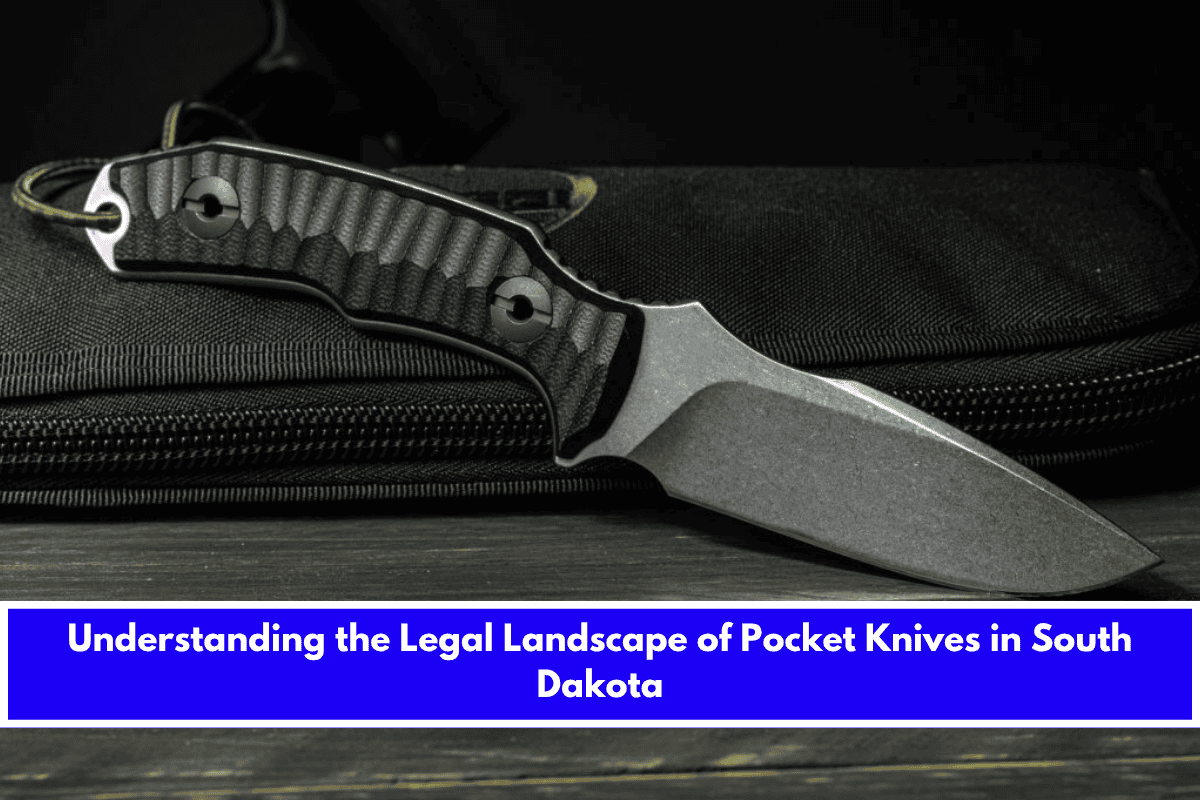South Dakota has some of the most permissive knife laws in the United States, making it a favorable state for knife owners and enthusiasts. Here’s an overview of the legal landscape for pocket knives specifically:
Ownership and Carry
- No Prohibited Types: South Dakota does not ban any specific types of knives. Pocket knives, as well as larger or more specialized knives (such as switchblades, butterfly knives, or fixed blades), are generally legal to own and possess.
- No Blade Length Restrictions: There are no state-level restrictions on the length of a knife blade, including for pocket knives. You can legally own and carry a pocket knife of any length.
- Open and Concealed Carry: Both open and concealed carry of pocket knives are permitted under state law, provided the knife is not carried with the intent to commit a felony or other crime.
- Age Restrictions: State law does not set a minimum age for carrying or purchasing a pocket knife. However, federal law prohibits selling certain knives to minors, and parents should supervise minors’ use of knives.
Restrictions and Prohibited Locations
- Schools: It is illegal to possess any knife (including pocket knives) on public elementary or secondary school premises, except for certain authorized personnel.
- Government Buildings: Knives are generally prohibited in county courthouses and the state capitol.
- Municipal Ordinances: Some cities, including Rapid City, Sioux Falls, Aberdeen, and Sturgis, have local ordinances that restrict the concealed carry of certain knives or knives with blades over a specific length (e.g., Rapid City prohibits concealed carry of knives with blades over 3 inches). Sioux Falls, for example, prohibits concealed carry of daggers, Bowie knives, and dirk knives, but explicitly excludes ordinary pocket knives carried closed from this restriction.
- Deadwood: Unconcealed carry of knives is restricted in some public transportation or public settings.
Consequences of Violations
- Violating Restricted Areas: Carrying a knife in a prohibited location (like a school or government building) can result in misdemeanor charges, fines, and potential jail time.
- Using a Knife in a Crime: Using a knife in the commission of a crime (such as assault or burglary) can lead to much more serious charges, including felonies.
Summary Table
| Aspect | South Dakota State Law | Notable Local Exceptions |
|---|---|---|
| Prohibited Knife Types | None | None |
| Blade Length Restrictions | None | Rapid City: >3″ concealed not allowed |
| Open Carry | Permitted | Deadwood: un-concealed restrictions |
| Concealed Carry | Permitted (unless intent to commit felony) | Sioux Falls: no concealed daggers/Bowie, but pocket knives OK closed |
| School Possession | Prohibited | — |
| Government Buildings | Prohibited | — |
Key Takeaways
- Pocket knives are generally legal to own and carry in South Dakota, with no state restrictions on blade length or type.
- Local ordinances may add restrictions, especially for concealed carry in certain cities.
- Always check local laws, especially when traveling through or residing in major cities like Rapid City or Sioux Falls.
- Never carry a knife in schools, courthouses, or the state capitol.
South Dakota’s approach is highly favorable for knife owners, but awareness of local ordinances and restricted areas is essential for lawful carry.
Sources:
- https://www.akti.org/state-knife-laws/south-dakota/
- https://nobliecustomknives.com/us-knife-laws/south-dakota-knife-laws/
- https://www.reddit.com/r/SiouxFalls/comments/enmvks/knife_laws/
- https://knifeade.com/south-dakota-knife-law/











Leave a Reply